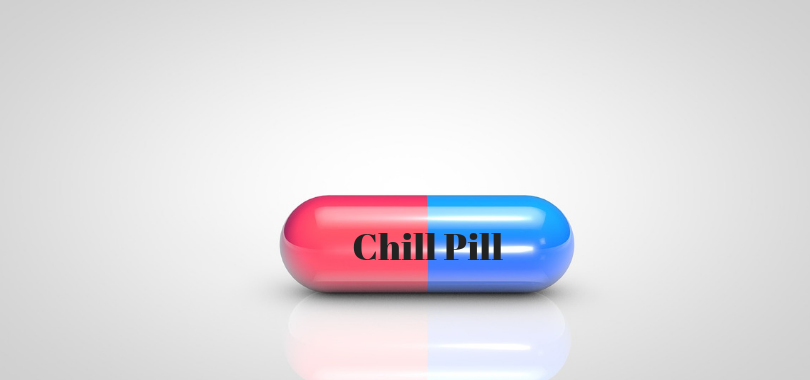In the second part of my posts about the top 24 things that will cause a flare in what you thought was endometriosis and adenomyosis symptoms, but may isn’t, I continue with the next 12 causes of what you think is endometriosis, or adenomyosis symptoms, may just be caused by something else?
In this post I continue to bring awareness to the fact that sometimes it is not always Endometriosis, or Adenomyosis causing your current symptoms. It may be one of the following facts only, or in combination. What we need to remember is that many women with endometriosis, and adenomyosis, often have other issues that are flaring their current symptoms, and often present the same as endometriosis and adenomyosis, in their symptomology.
We also know that many other causes of flares of symptoms are often overlooked, and even dismissed, just as endometriosis and adenomyosis is often missed and dismissed.
Many women may have other issues going on at the same time as having endometriosis, or adenomyosis, and it is possible to have both endometriosis and adenomyosis combined and well as having other health issues in combination as well. Just remember that not all your symptoms may be endometriosis, or adenomyosis, and why it is so important to see and expert in these conditions.
If you do need and expert and need help with endometriosis and adenomyosis, please give my friendly staff a call and find out how I may be able to assist you.
Let’s have a look at the next 12 causes of “What You Thought Was Endometriosis and Adenomyosis Symptoms, But Maybe Isn’t”
Causes of a Flare of What You Thought Was Endometriosis and Adenomyosis Symptoms, But Maybe Isn’t ( 13-24)
13.Tight pelvic floor muscles – Pelvic floor hypertonus occurs when the muscles in the pelvic floor become too tight and are unable to relax. Many women with an overly tight and non-relaxing pelvic floor experience pelvic health issues such as constipation, painful sex, urinary urgency, bladder issues and pelvic pain. Women with pelvic floor hypertonus may also have musculoskeletal issues that cause tightness and tension in surrounding hip, sacrum and pelvic muscles. Have a read on my previous post about this. (Click here to read)
14.Interstitial cystitis– Interstitial cystitis (IC) is a chronic inflammatory bladder condition in which there is persisting chronic pelvic pain, urinary frequency and urgency, bladder pain or pressure, and it can also resemble the symptoms of a urinary tract infection, but there will be no infection present. The pain can range from being mild to severe. Women with interstitial cystitis may experience many of the same symptoms as those with endometriosis. Women can have both Interstitial Cystitis and endometriosis at the same time. Some people with IC may also have irritable bowel syndrome (IBS), Fibromyalgia and other pain syndromes. This is why proper differential diagnosis is very important as this can be missed very often, or completely overlooked. Have a read of my previous post about IC (Click here to read)
15.Pelvic Congestion Syndrome– Pelvic congestion syndrome (PCS) is a chronic condition that occurs in women when varicose veins form below the abdomen within the pelvic region. Pelvic congestion is just like the varicose veins that some women have in their legs, but it affects the veins of the pelvis. Blood backs up in the veins, making them become enlarged and engorged. Pelvic congestion can also cause chronic pelvic pain in some women. Pelvic congestion syndrome does share many of the same symptoms of endometriosis and adenomyosis and it important to have proper differential diagnosis and rule other causes of pelvic pain out first. Sometimes the varicose veins that cause pelvic congestion syndrome can be present alongside endometriosis and adenomyosis, or other pelvic issues. Have a read of my previous post about PCS (Click here to read)
16.Constipation and full bowel- A common cause of pelvic pain and abdominal pain and bloating and caused by constipation and a full bowel that is slowly backing up and starting to compact. In serious cases, the bowel can compact and even perforate if not addressed soon enough. When the bowel is not fully voided, it can lead to backing up of the bowel. Many people are still moving their bowel each day, but just do not realise, it is not being voided properly. This can lead to pain, gastrointestinal issues and also feeling unwell, due to not voiding waste from the body. It is a very commonly overlooked issue. This is why women need look at restoring the microbiome properly and also drinking enough water, eating enough fibre and also creating good bowel habits and not holding on too long at work.
17.Lack of sleep – Lack of quality sleep is a major issue for many women and is a common cause of their fatigue, increased pain, and exacerbation of symptoms, interference of moods, and a whole range of health issues physically and mentally. Sleep deprivation leads to reduction in hormones such as melatonin, which is a precursor to serotonin and then affect the moods etc. Lack of sleep also interferes with the other hormones in our body too. Lack of sleep also stops the body from repairing and can lead to increased inflammation within the body. We know that shift works do have a lot more disturbances with their menstrual cycles and also have lower fertility rates.
18.Over-exercising– Over-exercise can lead to tight pelvic floor muscles and hypertonus, but it can also lead to decrease body fats as well. Body fat plays a regulatory process with hormones and fertility. A significant decrease in body fact (10-15%) can lead to decreased hormone production and actually stop the menses and interfere with fertility. Over exercise can also cause stress and inflammation in the body and can also lead to adrenal exhaustion and fatigue. It is all about balance.
19.Lack of exercise– Lack of exercise if a big factor in a lot of people’s health issues. Lack of blood flow and lack of circulation to muscles and tissues, especially the uterus and vagina, can have some serious consequences for women’s health and gynaecological conditions. Without proper microcirculation into the uterus, and vagina and reproductive organs, these areas can become highly stressed, lack vital nutrients and then leads to inflammation, pain and other irregularities. It is a catch 22 situation. Too much exercise is not good, but similarly, not enough exercise is just as bad for us. While sometimes we may not feel like exercising, the fact is, research has shown that regular exercise can, and does help with pain, and other symptoms of endometriosis and adenomyosis.
20.Environmental Estrogens– According to a landmark US study published by the US department of environmental health, there are 87,000 plus environmental estrogens we are exposed to in all countries around the world, some being worse than others. These can be anything from plastics, detergents, petroleum products, chemicals and even the contraceptive pill ending up in our water ways. These endocrine disruptors (AKA as environmental estrogens) can interfere with hormones within our body and also lead to inflammation and many health issues. They have also been linked to the increase in lower fertility rates and the increase in expression of genetic mutations within the body. Endometriosis and adenomyosis is driven by estrogen and this may be a big factor in the increase in women with endometriosis and adenomyosis.
21.Lack of blood/increase of blood circulation– The microcirculation of the uterus, vagina and reproductive organs is a very important one and one of the reasons getting proper blood flow and improving microcirculation into these areas is important. I talked about this in the lack of exercise part. It is also important to check women for hereditary blood clotting and also bleeding disorders. All women with gynaecological and fertility issues should be screened for blood clotting disorders via prothrombotic studies and also bleeding disorders such as Von Willebrands Disease, when suspected.
22.Musculoskeletal issues– Women with postural issues, or their spine out of alignment can also experience referral pain, and pelvic pain due. It is important to have musculoskeletal causes of pain assessed by a qualified healthcare professional (physio/chiropractor/osteopath). When muscles are too tight, it can cause sublaxations, which can then impinge on nerves and also cause referral pain and other health issues within the body. Damage to nerves and tissue, such as pudendal nerve neuralgia can also cause pain and referral pain in the lower abdomen, pelvis and vagina.
23.Excess weight and body fat– At present up to 70% (or more) of Australians, and Americans, are either overweight, or obese, so we can no longer ignore what the consequences of these statistics mean. We know that excess weight and excess body fat is linked to serious health consequences. Excess body fat in men and women leads to higher levels of the hormone leptin. Excess body fat is also now referred to as obestrogens, as they cause the same health consequences as environmental estrogens (known as endocrine disruptors). These excess body fats and higher levels of leptin do impair production of sex hormones and also reduces fertility. It can also lead to poorer sperm quality, poorer egg quality and can also increase the risk of miscarriage. Excess body fat, especially excess abdominal fat, is also linked to insulin resistance, metabolic syndrome and other health issues. It also interferes with the regulation of sex hormones and sex hormone binding globulin (SHBG). This can then increase the risk of irregular cycles, PCOS, endometriosis, adenomyosis, miscarriage and other factors affecting fertility. Excess body fat can also be a major driving factor of endometriosis and adenomyosis, due to the estrogenic effects it has. This is why reduction in body fat and a healthy diet and healthy lifestyle is imperative in the management of women’s health and fertility.
24. Iron Deficiency– Iron deficiency can be a very serious issues, and many women do not realise the health risk associated with it, and how often it goes undiagnosed. It can lead to disruption of hormones, and can lead to fatigue and exacerbation of pain and emotionally generated symptoms. Let’s face it, without iron, you aren’t going to be transporting oxygen around your body and then your muscles, brain, hormones and circulation suffer as a result of this. Women with endometriosis and adenomyosis are nearly always iron deficient from the heavy blood losses they suffer, or the internal bleeds they get from flares of endometriosis lesions. Have a look at my previous past on the serious consequences of low iron and why managing iron levels is so important (Click here to read)

